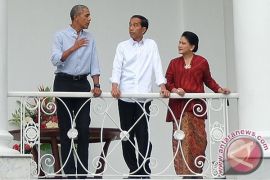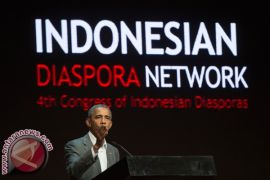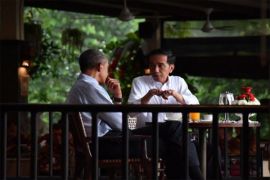"If the attacks in Libya on the government forces there continue for three weeks or a month, there will be way more than just concern. There will be anxiety, perhaps anger," said Democratic Senator Sherrod Brown.
Brown told MSNBC television in an interview that Obama "needs to face the nation and tell the nation and tell Congress what the end game is and how this is going to play out."
But the lawmaker, who represents the vote-rich state of Ohio, urged critics to consider "the humanitarian disaster that we averted because of this" and generally praised Obama`s handling of the crisis.
"I think the president moved cautiously. I think he brought other countries together, which was important. I think his commitment of no ground troops and short-term is -- those commitments are also very, very important," he said.
But Brown said US forces were "overextended," citing wars in Iraq and Afghanistan, operations in Libya, and counter-terrorism efforts including drone strikes in Pakistan, and that lawmakers were "all concerned."
He noted he had voted in late 2002 against authorizing the use of force against Iraq and said that as a result of that conflict "we lost our focus on Afghanistan."
"So I hope the president has thought this through better than previous presidents on dealing with the Middle East and the Arab world, and that`s why I think it`s important he address the nation," said Brown.
The senator also praised Republican House Speaker John Boehner for sending Obama a letter seeking a detailed explanation of US policy, strategy and benchmarks for success in the Libya operation.
"They were legitimate questions. I think they were generally the right questions. I think it`s what people are asking, analysts are asking, the public`s asking, Congress is asking," said Brown.
"I expect the president to answer them in some detail, perhaps not as much as Speaker Boehner will ask, but that`s what he needs to do," he said.
Democratic Representative George Miller, a close ally of Democratic House Minority Leader Nancy Pelosi, charged that Obama had failed to consult lawmakers and had acted outside his legal authority.
"I`m one of those who believe that when you`re not defending the shores of the United States, you have an obligation under the Constitution to come to the Congress and ask for permission," he told MSNBC.
Miller, who had been asked whether he agreed that the president`s actions fell inside the bounds of his proper legal authority, declared: "No, I don`t agree with that."
And "I don`t think there`s a lot of evidence that they (the White House) sufficiently consulted the Congress," said Miller, who warned Obama to "keep his pledge" that US forces will soon take a supporting role in the operations.
"It`s easy to get into one of these. It`s very difficult, as events unfold, to get the hell out of there," said Miller.
Pelosi, one of Obama`s key congressional allies, said Wednesday that US action had prevented Libyan leader Moamer Kadhafi from making good on his threat to show "no mercy" to rebels against his rule.
But "decisions made in the days ahead are strengthened by our NATO partners` participation. US participation is strengthened by the President`s continued consultation with Congress," she said. (B002/K004)
Editor: Kunto Wibisono
Copyright © ANTARA 2011








